Playing with a puppy can be fun, but it can also result in some gnarly marks on human skin. It can also quickly turn into a habit if you are not careful. Put a mouthy dog in an uncomfortable situation and someone will likely get bit. Nonetheless, biting is a natural behavior for puppies and should not be punished; rather, you as the owner should be proactive in training your dog to engage with people appropriately so that bites do not happen. Even if your dog is already past puppyhood, they can still learn to stop. Therefore, we’ve broken this training down into two categories: puppy biting and adult dog biting. Keep reading to find out what you can do now to manage your dog’s urge to bite.
Puppy Biting
The most ideal time to train your dog not to nip is when they are young. They learn from repetition so the sooner you start training, the better. Plus, your puppy will begin teething soon (if they haven’t already) which will present you with plenty of opportunities to train. Understand that puppies bite because they are learning about themselves and their environment, and because teething can be painful. Be patient and remain consistent with your training. Pupford estimates the puppy biting stage to last about three to six months, but every individual dog is different.
Focus on the following practices for puppies:
Establish an exercise routine
Young puppies do not need a lot of exercise. However, time flies when you are a new pet parent, so do research for your breed now. Find out how much exercise they need and how to progress as they grow. They are prone to act out when they are lacking physical stimulation, so play an engaging game like fetch or tug to really tire them out.
Spontaneous training sessions
Get your dog’s attention to stop them from biting at you. Even if they cannot perform any commands yet, the process of listening and interpreting is at least able to get the urge under control, even if just for a moment. Also, conducting sporadic training sessions with your puppy will tire them even more through mental stimulation. ‘Yes,’ ‘No,’ and ‘Leave It’ are especially helpful with this.
Don’t get frustrated
Puppies bite. They use their mouths like we use our hands, so remember to be patient with them. An overreaction could scare your dog and damage your bond with them. It could also cause more biting over time, which would ruin the training altogether.
Bite inhibition
Oftentimes our puppies just don’t understand how sharp their teeth are yet. You can show them that their bite hurts by letting out a verbal yelp or “Ow!” Be cautious, though, because puppies can sometimes mistake your squeal for play. This can be more effective when combined with our next tip…
Biting means ‘game over’
Your pup needs to learn that their bite is where your attention ends. Even yelling at them is a type of reward, because any reaction from you is better in your dog’s eyes than receiving absolutely no attention from you at all. So, the second your puppy is wrapping his jaws around you, immediately stand up and turn away from him. You can take this a step further by crossing your arms as well.
Offer quiet time or a potty break
Your puppy may be nipping at you in attempt to alert you that they need to go outside. If you are certain your dog does not need to relieve himself, consider putting him in a play pen or kennel to settle down. Stay calm and do not show any upset or else your dog might begin to have a negative association with their confinement area. Approach this as a short break from your attention and play; not a form of punishment.
Give them something to chew
Supplement your flesh with something they can have. A Kong filled with puppy-safe treats will give them a tasty distraction. You can also D-I-Y a teething toy; for example, take a clean towel and soak it in water or low-sodium chicken broth. Stick it in your freezer and let it harden. Your puppy will enjoy the soothing temperature while he gnaws on the towel.
Adult Dog Biting
If your dog is already past the puppy stage, that’s okay. There are still a lot of different ways you can get them to stop biting, many of which are similar to if not the same as the bite training for puppies. The key difference with adult dogs is that the biting might be aggressive rather than playful. An adult dog with a full set of teeth can do a lot of damage, so you need to determine where exactly your dog’s urge to bite is coming from ASAP. If they only nip and use their teeth during play, you can proceed with this training. But if your dog is showing signs of aggression (i.e., snarling, growling, lunging without eye contact, head butting), this training is not safe to try at home. Aggressive dogs should be seen by a pet behaviorist/certified professional dog trainer and may need veterinary attention as well. This training should only be used on adult dogs who lightly nip and mouth during play or for attention, and never from a point of fear, anxiety or defense.
Focus on the following practices for adult dogs:
Bite inhibition
Much like the rules for puppies, you need to teach your dog what their bite results in. Let out a yelp or “Ow!” when they bite too hard during play. As soon as they stop, or if they start licking you, praise them. You can do this up to three times in a play session. You should then take a break so your dog doesn’t start thinking that your yelp is the game. Take it up a notch by ending the game the second your dog bites especially hard. Let them know that it is fine to use their mouth during play, but if they get out of hand, it’s game over.
Give them something to chew
A special toy, treat-filled kong, or a bone will work wonders to keep your dog busy. If they start getting too forceful with their teeth, present them with an alternative. My best recommendation is to use something flavored. Some adult dogs are not interested in toys, but food usually does the trick.
Feed treats with one hand while petting with the other
If your dog likes to nip at hands when approached for pets, this technique should be your focus. Feed your dog a high-value treat in one hand, and use the other to pet. Do this often while switching up the treats to keep the training interesting.
Encourage non-contact play
Teach your dog that there are much more exciting things to play with than your skin. Tug of war is a great way to show them that if they avoid biting your arms, you can use them for an exhilarating game. A long rope toy will keep a bit of a distance between the two of you while you play. If your dog loves to run, playing fetch can tire them out while keeping their teeth far from you.
Exercise
Adult dogs need a solid exercise routine. If your dog has been getting mouthy, he might not be burning off enough energy. Research your dog’s breed and age or consult your veterinarian to find out how much daily exercise they need.
Socialize
Make sure your dog has plenty of time to play with other healthy pups. Taking them to a dog park is a fantastic way to stimulate your dog physically and mentally. Playing with other dogs of similar size and stamina can reduce the urge to bite at home.

Keep distractions handy
Keep the biting to a minimum by prepping your house with distractions. Leave toy and treat options out of your dog’s reach in each room. Any time your dog starts to get out of hand, grab one of these distractors and bring their attention to that instead.
Timing is crucial!
You should be rewarding your dog the second he stops biting you. Focus on always giving praise and treats as soon as your dog is relaxing, playing nicely, etc. Show them that good behavior is what gets your attention and love, not biting you.
Remember, all dogs nip and bite. They don’t have the privilege of apposable thumbs like we do! It’s not uncommon for your dog to get carried away occasionally. But, if signs of aggression appear, the behavior is no longer normal. Be sure to understand the difference between play and aggression. Always stay alert and prepped for nibble outbursts. Lastly, stay consistent with your training. If you start during puppyhood, don’t allow your training routine to drop off once your dog has ‘mastered’ it. Keep progressing, and your dog is a lot less likely to fall back into those nippy old habits.

You might be interested in reading more articles on Dog Training.
Thank you to the following sources:
https://pupford.com/stop-puppy-biting-fast/
https://www.akc.org/expert-advice/training/stop-puppy-biting/

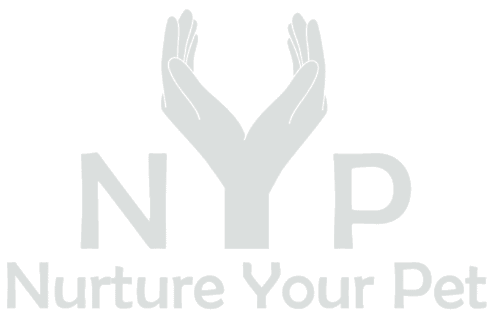




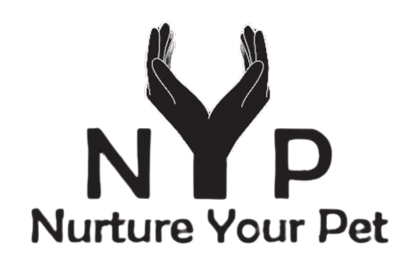
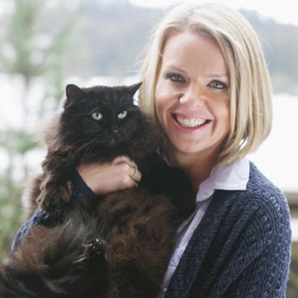
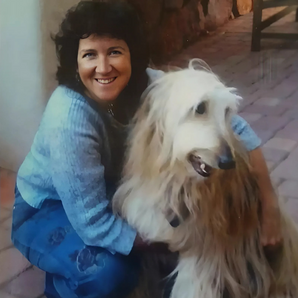
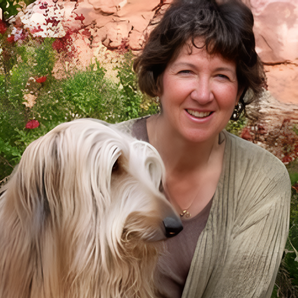

He doesn’t fight as a puppy he aggressively charges and bites. He’s a Norfolk terrier.and he’s 2.5 years old and adopted from the shelter.